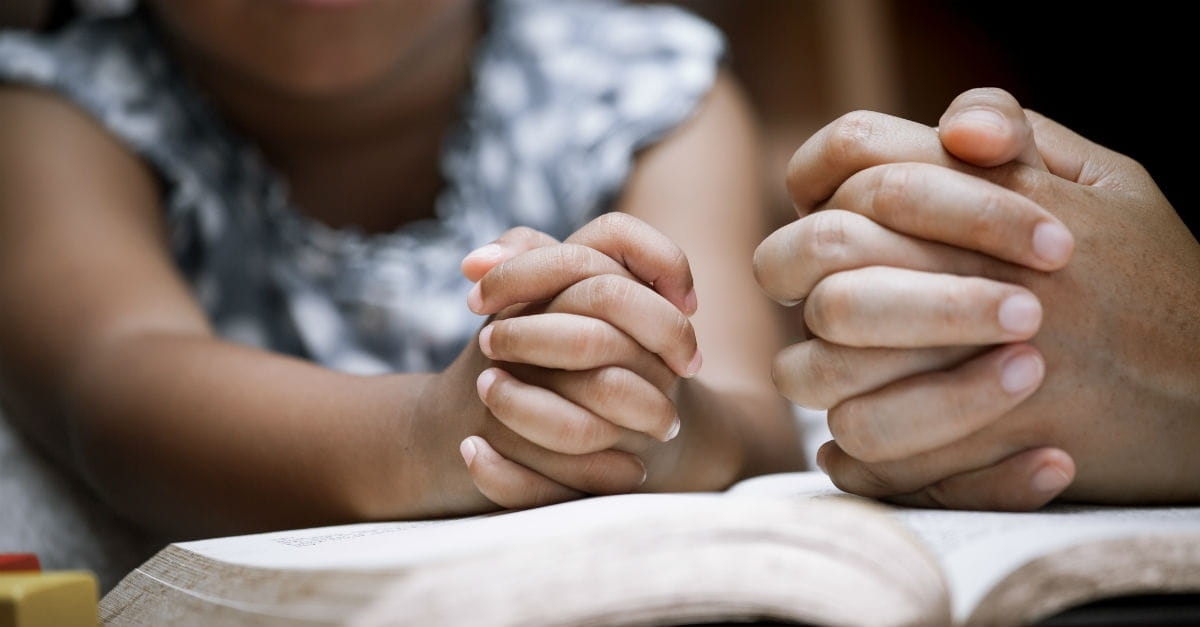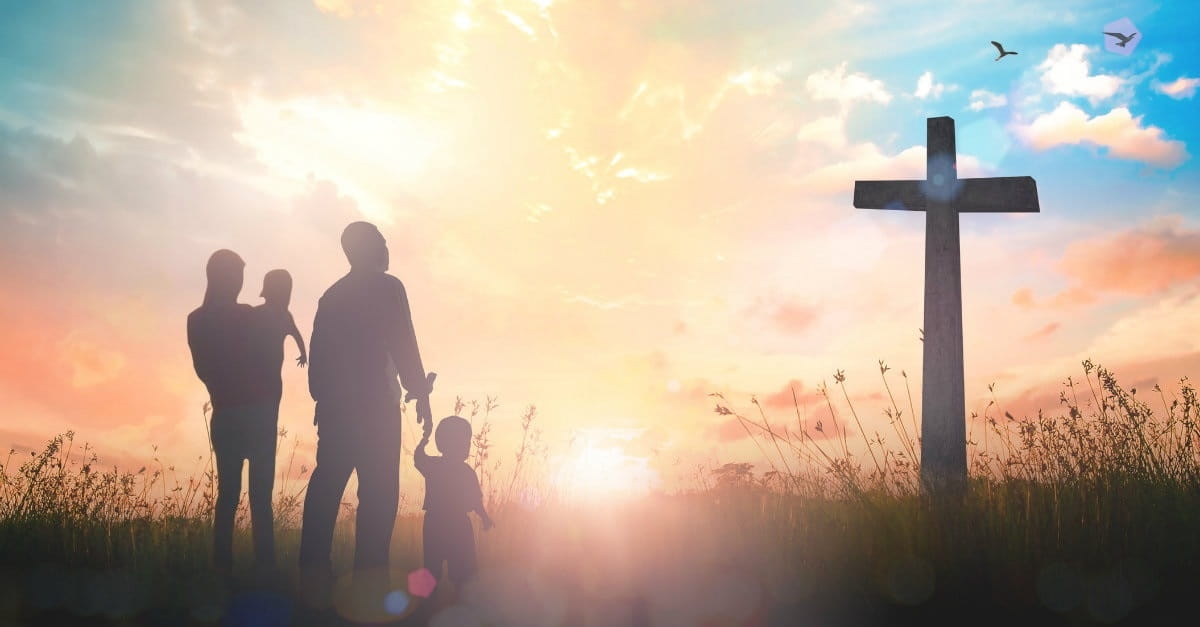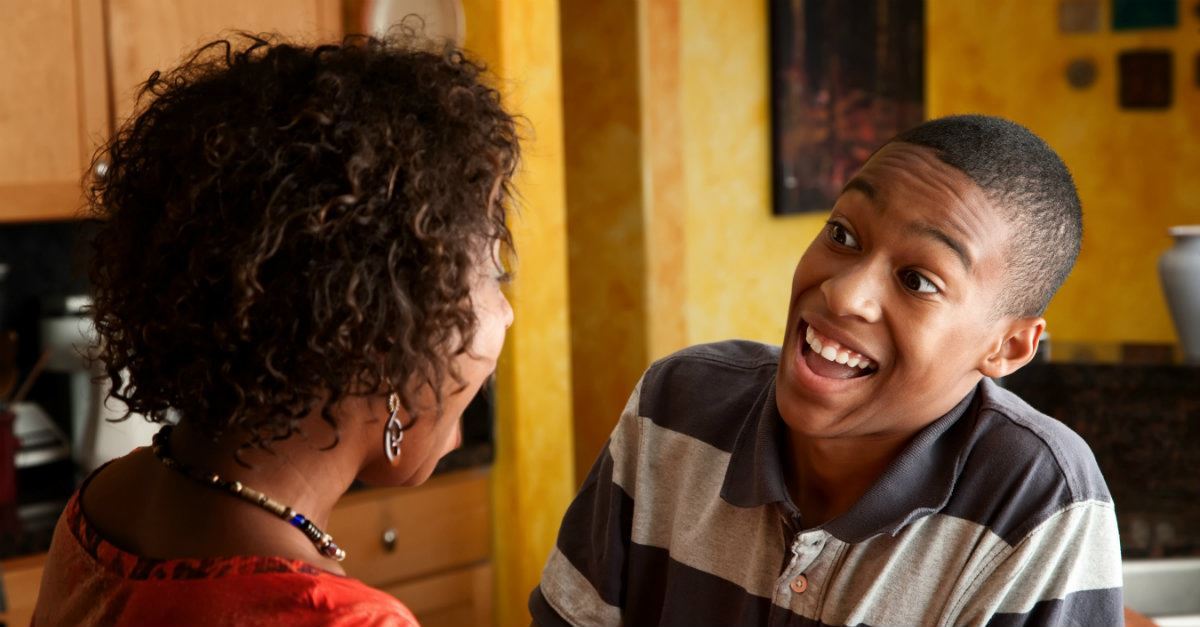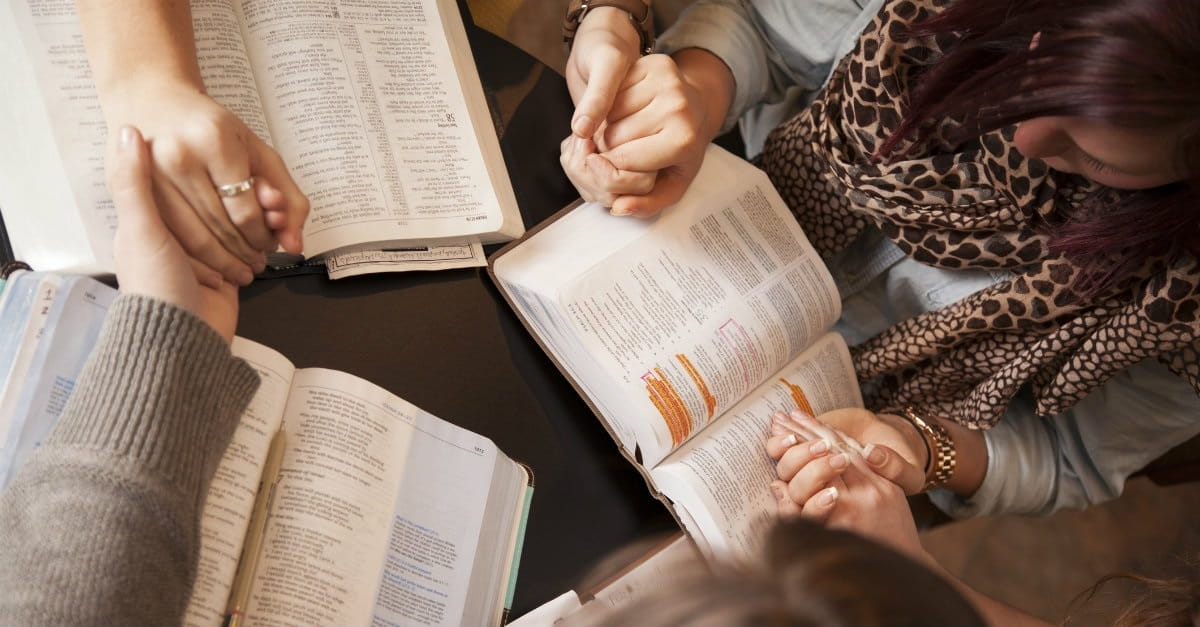
Ever since the first sin in the Garden of Eden, humans have been struggling with three tricky obstacles to the healing power of grace. When Adam and Eve gave in to Satan’s temptation, they experienced guilt, knowing they disobeyed God. They were consumed with fear as they tried to hide. And, they wrestled with shame as they desired to cover themselves.
But the gospel is good news for all, including those of us parenting special-needs children as we carry the familiar burdens of guilt, fear, and shame. Just as the sailors on Paul’s journey had to lighten their loads to survive (Acts 27:38), we must let go of the overwhelming responses that are dragging us down.
Photo Credit: ©Unsplash/Fineas Gavre
Give your guilt to God’s greater plan.

A few years ago, my son with autism, James, and I sat down at a multi-church potluck. Potlucks aren’t easy for us, especially as the pastor’s family.
My husband, Lee, needs to be free to talk to everyone, which means I’m on my own with the boys. In line, James grabs at the foods he wants, and I can’t balance our plates while dishing out the food and keeping his hands out of the desserts.
Since autism is invisible, people have the expectation that he is a typical child. It doesn’t take long for them to figure out he isn’t typical.
The lady across from us at the table gestured to James and asked, “Is he going to grow out of that?” I wasn’t sure what she meant. “His autism?” I responded, “will he grow out of his autism?” “Yes,” she answered.
Then followed up with, “What did you do when you were pregnant to make him that way?”
What did I do to make him that way?
In another conversation I had with a mom at my older son’s theater rehearsal I was asked, “Did you eat a lot of tuna when you were pregnant? I hear that’s what causes those problems.”
There are a lot of theories on the cause of autism. There’s lack of attachment, vaccines, pollution, chemical causes (like getting your hair dyed while pregnant), and the list of theories goes on and on.
The questions doctors and therapists ask when doing intake forms don’t help ease the guilt we feel—What medicines did I take when pregnant? How long was I in labor? Did I have an epidural? How many ear infections did he have as a child? What antibiotics did he take?
Every answer makes me question each decision I made from the moment I knew I was pregnant with him.
To be clear, we don’t fully understand what leads to autism, so the answers to every one of these questions may not matter at all. But when everyone seems to think you had something to do with it, you feel the heavy burden of guilt.
Photo Credit: ©Thinkstock/Sasiistock
Know that Jesus forgives your feelings of guilt.

Guilt can be healthy. The conviction of the Holy Spirit can bring feelings of guilt or remorse over sin and lead you to repentance. But I’m talking about the guilt that causes you to always relive the past, to carry that remorse into your daily life.
Let’s look at how Jesus reacted to a woman carrying the heavy burden of guilt and her reaction after meeting Him.
In John 4, Jesus and His disciples traveled through Samaria, a place usually avoided by Jews. He was alone when a lonely woman of Samaria approached to draw water from the well. She was amazed he was willing to converse with her, and he demonstrates love and acceptance, regardless of knowing everything about her guilt. She is so amazed and renewed that she returns to town, bravely sharing her good news. Those who may have rejected her instead listened to her, and believed he was the Savior of the world (read John 4:9-42).
One meeting with Christ. That’s all it took to free her from the guilt she carried.
And once she was free, she didn’t live in the past anymore. She could face the townspeople with her new confidence in what Christ had done.
Even if she sat at a table across from someone who said, “Aren’t you that woman…?” she could reply, “Let me tell you what I know now…”
And we can follow her example. What vaccines did you give him? How much tuna did you eat? Did you live in a city with high pollution? None of the answers to those questions matter as much as pointing people to the hope we have in Christ now.
Photo Credit: ©Thinkstock/Boonyachoat
Look to the future without fear.

Ask 100 special-needs parents what their #1 stress is and it’s likely most of them will answer the unknown future for their kids.
In 2015, Dateline set out to answer: What happens when those with special needs age out of the education system? They spent three years following two families with young adult sons on the autism spectrum.
Even the promo sounds ominous: “Graduation is supposed to be a joyful time for families, but mothers Lenore Kubicsko and Mary Clancy are filled not only with pride, but also terror and dread as their young adult sons with autism prepare to leave school.”
When I asked on my Facebook page if anyone had seen it, one friend said she didn’t think she could watch. Why? Because we’re scared.
How do we look to the future without fear?
Photo Credit: ©Thinkstock/CREATISTA
Stand on biblical truths that are stronger than your fear.

The Proverbs 31:25 woman doesn’t laugh at the time to come because she has it all figured out. She laughs because she has confidence in the One who does.
The Bible gives us the most powerful weapon against fear: faith in God’s love.
“There is no fear in love, but perfect love casts out fear.”(1 John 4:18 ESV).
“For I know the plans I have for you, declares the Lord, plans for welfare and not for evil, to give you a future and a hope.” (Jeremiah 29:11 ESV)
“I sought the Lord, and he answered me and delivered me from all my fears.” (Psalm 34:4)
Seek Him today. Listen for His answer. Experience His deliverance. And fear not, not in your present circumstances or your unknown future.
God is here and already there, and He cares for you.
Photo Credit: ©Thinkstock/Justin Kendra
Step out of shame and into your identity in Jesus.

Guilt keeps you in the past.
Fear keeps you in the future.
But shame is about your present circumstances.
Of these three challenges, shame hits me the hardest. Especially on Wednesdays.
“You may want to wear these armguards,” Ashley said as we prepared to go in the padded room where James would do his therapy. He hits himself and others (mostly me since I’m with him the most) to express what he can’t say.
On Wednesdays, we go to a local college with an outstanding autism center with masters-level students who focus on behaviors and communication. He gets rewarded for not hitting, gets lots of breaks, and actually loves therapy day, but it is exhausting to me. Not just because I’m getting hit, but because I feel judged.
According to shame researcher, Brené Brown, shame is related to guilt, but different. Guilt says, “I have done something bad.” Shame says, “I am bad.”
When we go to therapy each Wednesday, I don’t just feel like I’ve made a mistake in how I’ve handled James’s aggression up to this point, I feel like I am the mistake. I am a bad mom. I am bad.
As with guilt and fear, the gospel also has an answer for shame. Peter found it when he experienced the deepest shame of his life. Jesus knew Peter would deny him, and it doesn’t take long for us to see Jesus’s prediction come true. Peter acts exactly as Jesus said he would. And Peter felt that shame. Not just “I made a mistake,” but “I am a mistake.”
But Jesus is the solution.
When Jesus and Peter walked together near the Sea of Tiberias, Peter’s shame was healed as Jesus gently reminded him of the truth and gave him a mission. “Do you love me?” Jesus asked, to which Peter replied, “Lord, you know everything; you know I love you” (John 21:17 ESV).
Shame didn’t have the final say in Peter’s life, and it doesn’t in our lives either. You are more than the mistakes you’ve made or the weaknesses you feel. His love meets you where you are and gently reminds you of your identity in Him.
This excerpt is adapted from Sandra Peoples’ Unexpected Blessings: the Joys and Possibilities of Life in a Special-Needs Family, Bethany House, a division of Baker Publishing Group, ©2018. Used by permission.
Sandra Peoples, MDiv, is a leading voice in the disability community and a member of a special-needs family since birth. Her sister has Down syndrome, and in 2010 her son James was diagnosed with autism. Sandra is the executive editor for Key Ministry and Not Alone (Patheos), and her writing has been featured by FamilyLife Today, DaySpring, and Parenting Teens (LifeWay). Sandra, her husband, and their two boys live outside of Houston. Connect with her at www.sandrapeoples.com.
Photo Credit: ©Thinkstock/Katarzyna Bialasiewicz